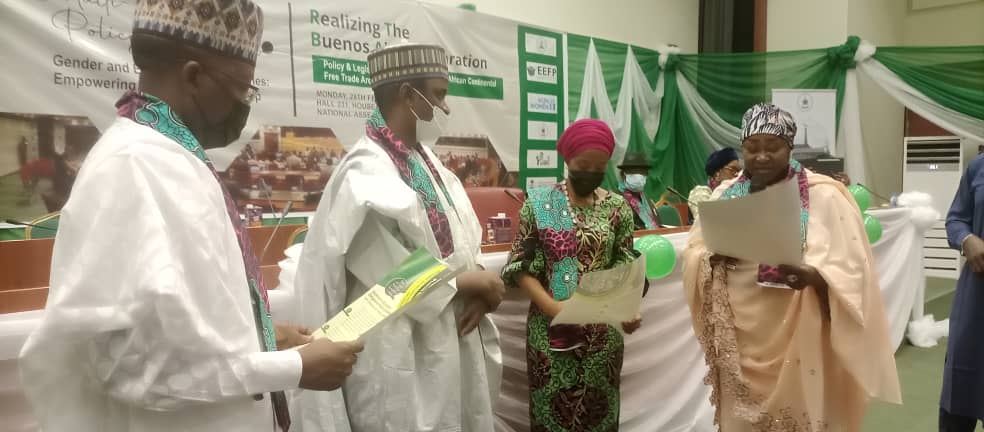The National Institute for Legislative and Democratic Studies (NILDS) has urged the Federal Government to domesticate the African Continental Free Trade Area (AfCFTA) in Nigeria to provide the enabling environment for gender-inclusive trade engagements.
The institute also called on the government to domesticate the Buenos Aires Declaration in the country.
Director-General of the institute, Prof. Abubakar Sulaiman made the appeal at a one-day multi-stakeholder policy dialogue held in Abuja on Tuesday.

The theme of the dialogue was “Gender and Women’s Economic Growth: Implementing the Buenos Aires Declaration in the Context of the African Continental Free Trade Area (AfCFTA)”.
The event was jointly organised by NILDS, Federal Ministry of Trade and Investment and Women Arise Development and Humanitarian Initiative (WADHI).
Sulaiman said that gender mainstreaming in free trade agreements was becoming an increasingly common practice.
“This involves including provisions to address the specific needs of women and implementing agreements with gender-sensitive policies”.
He said that the preamble of AfCFTA recognised the importance of gender equality for the development of international trade and economic cooperation.
“AfCFTA was created to promote trade and regional integration and development among African countries in line with the Africa Union (AU)’s Agenda 2063 goal of an “integrated, prosperous, and peaceful Africa.
“Article 27 of the Protocol on Trade and Services addresses the need to improve women’s export capacity.
“This provision targets women entrepreneurs and aims to ensure that they are not left behind in the process of trade liberalisation.”
The director-general further noted that the Buenos Aires Declaration (2017) on women, trade and economic empowerment committed its signatories to collaborate on making trade and development policies more gender-responsive.
He noted that the legislature has an important role to play in ensuring the implementation of these agreements and also in addressing challenges that women and women-led businesses face in trade agreements.
Declaring the event open, President of the Senate, Ahmad Lawan said that the role of women in trade could not be overemphasised.
Lawan who was represented by Sen. Sa’idu Alkali (APC-Gombe) called for more support for women who engaged in various trades.



